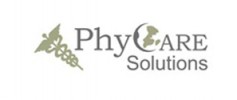Medical Transcriptionist
10+ Medical Transcriptionist Interview Questions and Answers

Asked in Cogito Tech

Q. What is the difference between signs, symptoms, and diagnosis?
Signs are objective indications of a medical condition, symptoms are subjective experiences reported by the patient, and diagnosis is the identification of the specific condition.
Signs are measurable or observable by a healthcare professional.
Symptoms are reported by the patient and can vary in severity and description.
Diagnosis is made by analyzing signs, symptoms, medical history, and diagnostic tests.
Example: A sign of a fever would be an elevated body temperature measured...read more

Asked in Vision India Services

Q. Tell few words about transcription? Tell about yourself? Why we want to select you?
Transcription is the process of converting spoken words into written form, often used in medical field.
Transcription involves listening to audio recordings and accurately typing out the spoken words.
It requires excellent listening skills, attention to detail, and knowledge of medical terminology.
Transcriptionists must have good typing speed and proficiency in using transcription software.
They need to ensure accuracy and maintain patient confidentiality.
Medical transcriptionis...read more
Medical Transcriptionist Interview Questions and Answers for Freshers

Asked in Cogito Tech

Q. What is the difference between generic and brand-name drugs?
Generic drugs are copies of brand-name drugs with the same active ingredients, but are cheaper. Brand drugs are expensive and patented.
Generic drugs have the same active ingredients, strength, and dosage form as brand drugs.
Brand drugs are expensive because they are patented and have exclusive rights to sell the drug.
Generic drugs are cheaper because they don't have to spend money on research and development, marketing, and advertising.
Both generic and brand drugs are regulat...read more

Asked in Cogito Tech

Q. What are diagnostic procedures?
Diagnostic procedures are medical tests or examinations used to identify a disease or condition.
Diagnostic procedures are used to confirm or rule out a diagnosis
They can include imaging tests such as X-rays, CT scans, and MRIs
Blood tests, urine tests, and biopsies are also common diagnostic procedures
Physical exams and medical histories are often used to help diagnose a condition
Diagnostic procedures are important for determining the best course of treatment

Asked in Cogito Tech

Q. Pharmacovigilance definition and methods?
Pharmacovigilance is the science and activities related to the detection, assessment, understanding, and prevention of adverse effects or any other drug-related problems.
Pharmacovigilance is the process of monitoring and evaluating the safety and efficacy of drugs.
It involves the collection, analysis, and reporting of adverse drug reactions (ADRs) and other drug-related problems.
Methods of pharmacovigilance include spontaneous reporting, intensive monitoring, cohort event mon...read more

Asked in Cogito Tech

Q. Drugs related to any specific disease?
Yes, drugs are often related to specific diseases.
Drugs are developed to treat specific diseases or conditions.
For example, insulin is used to treat diabetes, while statins are used to lower cholesterol levels.
Some drugs may also be used to manage symptoms of a disease, such as pain relief medication for cancer patients.
Certain drugs may have multiple uses and can be used to treat different diseases or conditions.
It is important for medical transcriptionists to be familiar wi...read more
Medical Transcriptionist Jobs




Asked in PhyCARE Solutions

Q. Explain about digestive system,and based on they choices
The digestive system is responsible for breaking down food into nutrients that can be absorbed by the body.
The digestive system includes organs such as the mouth, esophagus, stomach, small intestine, and large intestine.
Digestion begins in the mouth with the mechanical and chemical breakdown of food.
The stomach secretes acid and enzymes to further break down food.
The small intestine is where most of the nutrients are absorbed into the bloodstream.
The large intestine absorbs w...read more

Asked in Cogito Tech

Q. What are clinical phases?
Clinical phases refer to the stages of clinical trials that test the safety and effectiveness of new medical treatments.
There are typically three phases of clinical trials
Phase 1 tests the safety of the treatment on a small group of people
Phase 2 tests the effectiveness of the treatment on a larger group of people
Phase 3 tests the effectiveness and safety of the treatment on an even larger group of people
Clinical phases are important for determining whether a new treatment is...read more
Share interview questions and help millions of jobseekers 🌟


Asked in Cognizant

Q. Name a painkiller tablet.
Ibuprofen is a common pain killer tablet.
Ibuprofen is an over-the-counter pain reliever.
It is used to treat mild to moderate pain.
It can also reduce fever and inflammation.
Other examples include aspirin and acetaminophen.

Asked in Cognizant

Q. What are the uses of Diclofenac tablets?
Diclofenac tablets are used to relieve pain, reduce inflammation, and treat conditions like arthritis.
Diclofenac tablets are a nonsteroidal anti-inflammatory drug (NSAID).
They are commonly prescribed for conditions such as osteoarthritis, rheumatoid arthritis, and ankylosing spondylitis.
Diclofenac tablets can also be used to relieve pain and inflammation caused by injuries or surgeries.
They work by reducing the production of certain chemicals in the body that cause pain and i...read more

Asked in Cogito Tech

Q. Drugs name that are present in market
There are numerous drugs available in the market for various medical conditions.
Drugs for hypertension - Lisinopril, Amlodipine, Metoprolol
Drugs for diabetes - Metformin, Insulin, Glipizide
Drugs for pain relief - Ibuprofen, Acetaminophen, Naproxen
Drugs for depression - Sertraline, Fluoxetine, Escitalopram
Drugs for allergies - Loratadine, Cetirizine, Fexofenadine
Asked in Millennium Technosoft

Q. How many years of experience do you have as a Medical Transcriptionist?
I have 5 years of experience as a Medical Transcriptionist.
I have been working as a Medical Transcriptionist for the past 5 years.
I have extensive experience in transcribing medical reports and documents.
I am familiar with medical terminology, abbreviations, and formatting guidelines.
I have worked with various medical specialties, including cardiology, orthopedics, and radiology.
I have a strong attention to detail and accuracy in transcribing medical information.

Asked in R1 RCM

Q. Have you worked on e-scripts?
Yes, I have worked on escription.
I have experience using escription software for medical transcription.
I am familiar with the features and functions of escription.
I have transcribed various medical reports using escription.
I am comfortable working with escription and can adapt to any updates or changes.
Asked in Charak Hospital & Research Centre

Q. Why are you joining this sector?
I am drawn to the medical transcription sector due to my passion for healthcare and my skills in accurate documentation.
Passion for healthcare: I have always been interested in the medical field and want to contribute to patient care indirectly.
Attention to detail: My strong focus on accuracy ensures that medical records are correctly transcribed, which is crucial for patient safety.
Flexible work environment: The ability to work remotely as a medical transcriptionist aligns w...read more

Asked in TCS

Q. Why should we hire you?
I possess the skills, experience, and dedication necessary to excel as a Medical Transcriptionist, ensuring accuracy and efficiency.
Extensive knowledge of medical terminology, which allows for precise transcription.
Proficient in using transcription software and tools, enhancing productivity.
Strong attention to detail, ensuring high accuracy in documentation.
Experience in working under tight deadlines, maintaining quality and efficiency.
Excellent communication skills, facilita...read more
Interview Experiences of Popular Companies






Calculate your in-hand salary
Confused about how your in-hand salary is calculated? Enter your annual salary (CTC) and get your in-hand salary


Reviews
Interviews
Salaries
Users










